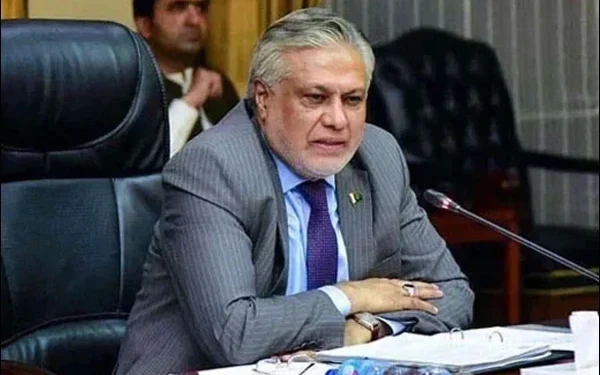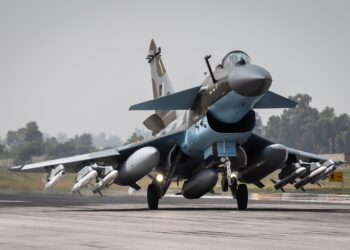Introduction: Strengthening Regional Ties through Diplomacy
Islamabad: In a significant move reflecting Pakistan’s commitment to regional diplomacy and multilateral engagement, Deputy Prime Minister and Foreign Minister Ishaq Dar is scheduled to depart for China today, where he will represent Pakistan at the Shanghai Cooperation Organization (SCO) Council of Foreign Ministers Meeting. The high-level diplomatic gathering is set to take place in Tianjin, China, from July 14 to 16, 2025.
This visit comes at a crucial juncture in regional geopolitics, as Pakistan continues to engage with key allies and neighbors within the framework of the SCO. The Council of Foreign Ministers (CFM) is one of the SCO’s most important decision-making bodies, and Pakistan’s active participation signals its ongoing strategic interests in economic integration, counter-terrorism cooperation, and regional stability.
About the Shanghai Cooperation Organization (SCO)
The Shanghai Cooperation Organization is a permanent intergovernmental international organization, founded in 2001. Initially established by China, Russia, Kazakhstan, Kyrgyzstan, Tajikistan, and Uzbekistan, the organization has since expanded to include India, Pakistan, and Iran, among others.
The SCO covers a wide range of cooperation areas, including:
- Regional security and stability
- Counter-terrorism and anti-extremism efforts
- Economic collaboration and development
- Energy security
- Cultural and educational exchange
The organization represents approximately 40% of the world’s population and over 20% of global GDP, making it one of the most influential regional blocs in the world.
Pakistan’s Role in the SCO
Pakistan became a full member of the SCO in 2017, alongside India. Since then, it has been an active participant in the organization’s forums, particularly in discussions on:
- Counter-terrorism cooperation
- Trade and investment facilitation
- Energy and infrastructure connectivity projects
- Cultural and academic collaborations
As a strategic gateway to Central Asia, Pakistan’s geographical position and political influence make it a vital member in promoting regional connectivity and security — two key pillars of the SCO’s mission.
Details of the Council of Foreign Ministers (CFM) Meeting
The upcoming meeting in Tianjin will be attended by foreign ministers from:
- China
- India
- Russia
- Iran
- Kazakhstan
- Kyrgyzstan
- Tajikistan
- Uzbekistan
- Belarus (a recent addition to the SCO framework)
These ministers will deliberate on pressing regional and global issues, including:
- The evolving Afghan crisis
- Pakistan-India bilateral tensions
- Energy and trade routes
- Multilateral counter-terrorism efforts
- Cybersecurity and information sharing
For Pakistan, the meeting provides an opportunity to present its views on matters of regional peace and security, while also lobbying for enhanced economic and technological cooperation with fellow member states.
Focus of Ishaq Dar’s Participation
As Deputy Prime Minister and Foreign Minister, Ishaq Dar will lead the Pakistani delegation. His participation is expected to focus on:
- Strengthening economic cooperation between Pakistan and SCO countries, particularly in the sectors of infrastructure, energy, and digital connectivity
- Highlighting Pakistan’s role in facilitating peace in Afghanistan
- Promoting Pakistan’s vision for regional peace, especially in the aftermath of recent tensions between Pakistan and India
- Discussing China-Pakistan Economic Corridor (CPEC) developments and how they align with SCO regional infrastructure plans
- Addressing emerging security threats, especially in cyberspace and hybrid warfare
Given his previous tenure as Pakistan’s finance minister, Dar is also expected to push for greater financial integration and trade facilitation mechanisms among SCO members.
Upcoming High-Level Visit by PM Shehbaz Sharif
Adding to the diplomatic momentum, Prime Minister Shehbaz Sharif is scheduled to visit China in August 2025, accompanied by a high-level delegation, which is expected to include Chief of Army Staff General Syed Asim Munir. Although the final dates are yet to be confirmed, sources suggest that the visit may take place just weeks before the SCO Heads of State Summit, scheduled for August 31 to September 1, 2025, also in Tianjin.
The Prime Minister’s visit is being seen as strategically significant, particularly in the wake of heightened security tensions in the South Asian region, especially the post-conflict scenario involving Pakistan and India.
Importance of SCO in Post-Pakistan-India Conflict Environment
While both countries are full members of the SCO, Pakistan-India relations remain tense, particularly following recent military escalations and diplomatic confrontations. The SCO offers a neutral platform where both nations can engage in track-II diplomacy, confidence-building measures (CBMs), and explore bilateral dialogues under the broader umbrella of regional cooperation.
The upcoming meetings in Tianjin may provide an avenue for limited backchannel discussions, although formal bilateral meetings between Pakistan and India have not yet been confirmed.
Geopolitical Significance of the Tianjin Summit
Tianjin, an industrial hub in northern China, is playing host to a series of high-level meetings under the SCO framework. These gatherings serve as a testing ground for China’s vision of multilateralism, and also reflect the growing global interest in Asian-led cooperative mechanisms.
Key themes expected to dominate the summit agenda include:
- Expanding the SCO’s role in global security and peacekeeping
- Strengthening digital economies and e-commerce connectivity
- Climate change and environmental challenges
- Enhancing transportation corridors and trade routes, particularly across Central and South Asia
Potential Outcomes of Ishaq Dar’s China Visit
While official statements have not revealed the full scope of Pakistan’s agenda, analysts believe that Ishaq Dar’s visit may yield several important outcomes:
- Bilateral Meetings with Key Counterparts: Including Chinese Foreign Minister Wang Yi, Russian Foreign Minister Sergey Lavrov, and counterparts from Central Asian states.
- Revival of Regional Projects: Discussions on connectivity projects such as CPEC Phase II and railway linkages between Pakistan, Uzbekistan, and Kazakhstan.
- Economic Agreements: MoUs and trade deals may be explored, especially in the areas of IT, agriculture, and pharmaceuticals.
- Joint Statements on Security: Endorsement of common policies against terrorism and regional extremism.
Public and Strategic Reactions to the Visit
Diplomatic experts and foreign policy analysts in Pakistan have hailed Ishaq Dar’s participation as a positive step toward reaffirming Pakistan’s role in the multilateral sphere. With regional dynamics rapidly shifting and global power centers pivoting toward Asia, Pakistan’s proactive engagement through platforms like the SCO is being seen as a necessary and timely foreign policy strategy.
Conclusion: A Strategic Visit with Far-Reaching Implications
The departure of Deputy Prime Minister and Foreign Minister Ishaq Dar for the SCO Council of Foreign Ministers Meeting marks a vital step in Pakistan’s ongoing efforts to rebuild regional trust, expand economic opportunities, and enhance strategic cooperation within Asia. As the world watches developments in the region closely, Pakistan’s diplomatic outreach via the SCO platform is poised to play a central role in shaping the future of regional stability, trade, and security.
The upcoming August visit by Prime Minister Shehbaz Sharif, potentially accompanied by General Asim Munir, further underscores the strategic depth of Pakistan-China relations and the broader role Pakistan seeks to play in Asian and global diplomacy through the SCO.

























